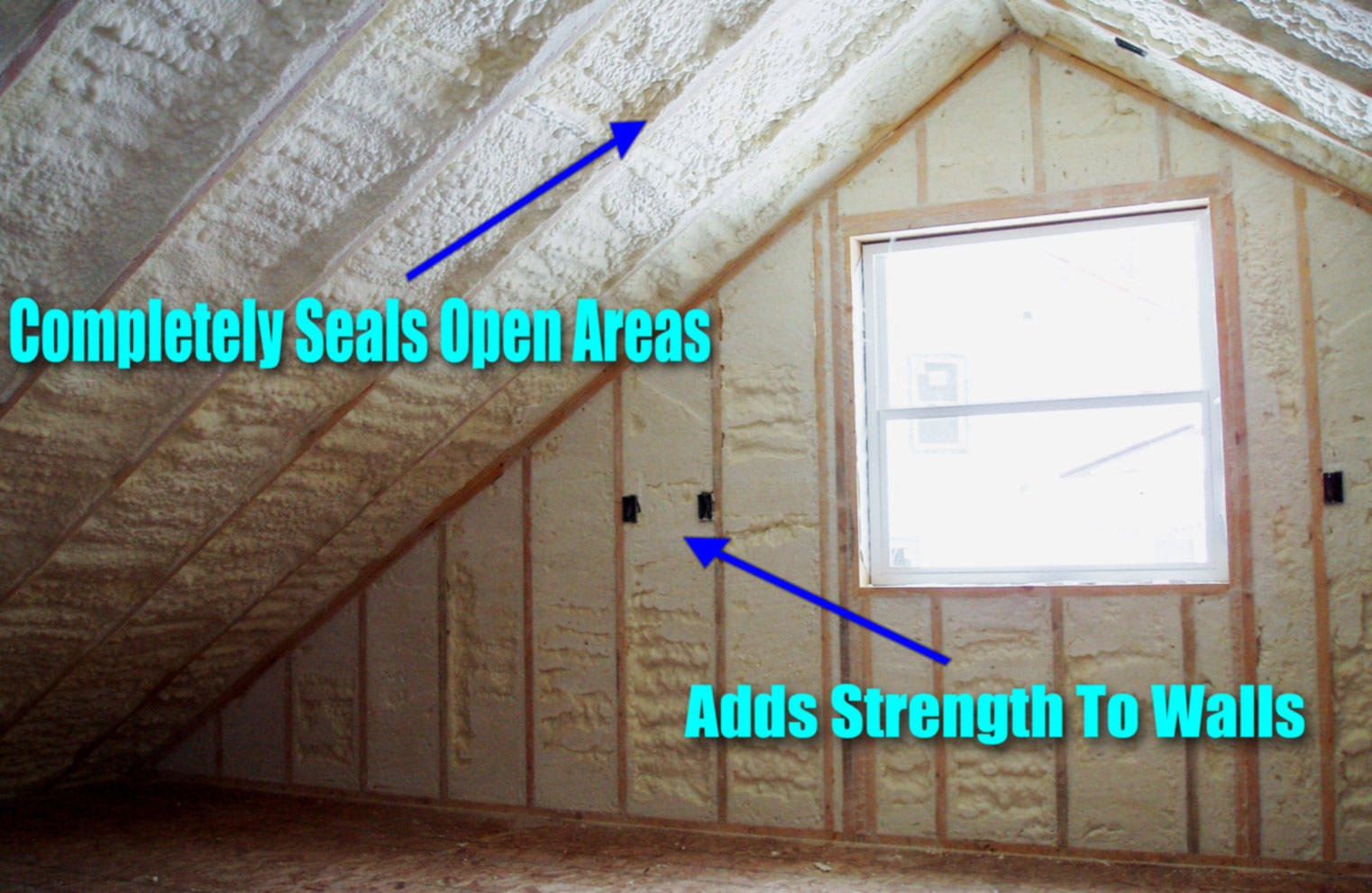Energy Efficiency and Spray Foam Insulation.
Whether you live in a mild or a severe climate, spray foam is a great choice when choosing to insulate your home or building. Did you know that up to 40% of a buildings energy is lost through air infiltration? Little cracks or holes in a building can cause individuals to spend unnecessary amounts of money on utility bills. Spray foam insulation eliminates air leakage by filling empty voids and small openings within a structure.
Initial Costs
Spray foam is without a doubt the more expensive form of insulation. Other forms of insulation, such as fiber glass, are cheaper but do not offer the same benefits. The US Department of Energy states that individuals spend upwards of 50% of their utility bills on heating and cooling. This is because many homes and buildings still allow air to infiltrate through walls. Adding Spray Foam insulation can reduce monthly utility costs by up to 30%. You may pay more initially for spray foam insulation, but the long term savings far outweigh the early costs. Compared to other types of insulation, spray foam offers higher r values, moisture control and effective air sealing capabilities.
How it works?
Spray foam insulation is made up of a two component chemical reaction. Spray foam chemical (component B) comes in the form of a liquid that quickly reacts with air, expanding to any cavity you spray it onto. The second component (component A) is the catalyst/harder. This additive is what causes spray foam to harden into a strong substance. The two different types of foam are closed cell and open cell. Closed cell foam not only works as a great insulator but also adds structural integrity to buildings as well. Open cell foam works as an excellent sound dampener.

What are the advantages?
One of the major advantages of spray foam is its ability to virtually eliminate air leakage within the walls of your house or building. Other forms of insulation, such as fiberglass or cellulose, have small air spaces between fiber materials causing air leakage. Spray foam insulation expands when applied to surfaces, filling and sealing any openings or cracks. In addition, spray foam does not shrink or change over time. Other types of insulation may need to be re-installed as they age. Once applied, spray foam maintains its structure. Spray foam produces a solid barrier once fully cured, eliminating the chance of dirt and moisture to accumulate within walls.
Feel free to reach out to us with any questions or concerns you may have about you next insulating project. The Master Pack team is happy to assist you with your spray foam insulation needs. Happy Foaming.
